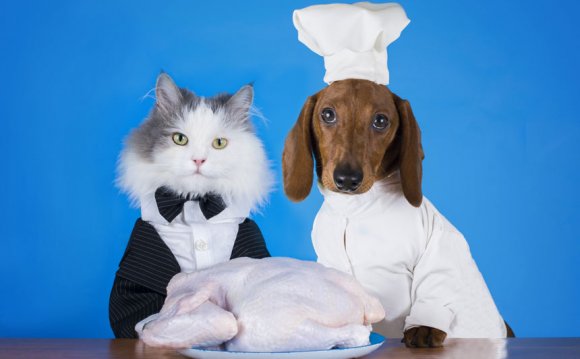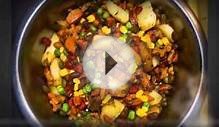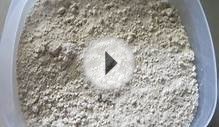
 Chances are you know at least one person who has gone gluten or grain free, who cites the benefits of the Paleo Diet and quotes from the bestselling books Wheat Belly and Grain Brain. Grocery stores have made shelf space for gluten-free pastas, crackers, cereals, cookies, and cake mixes and restaurants offer gluten-free pizza and beer to appeal to grain-free diners. But what about our four-legged fur babies? If your dogs are anything like mine, the only diet they adhere to is the “Anything Diet.” As in they eat anything I drop on the floor.
Chances are you know at least one person who has gone gluten or grain free, who cites the benefits of the Paleo Diet and quotes from the bestselling books Wheat Belly and Grain Brain. Grocery stores have made shelf space for gluten-free pastas, crackers, cereals, cookies, and cake mixes and restaurants offer gluten-free pizza and beer to appeal to grain-free diners. But what about our four-legged fur babies? If your dogs are anything like mine, the only diet they adhere to is the “Anything Diet.” As in they eat anything I drop on the floor.
But long before dog food was scooped from a bag into personalized doggie dishes, canines would hunt and capture raw, protein-rich meals. After all, you don’t see wolves grazing peacefully in a field of flowers. Just like the theory behind the Paleo Diet for humans, protein-based, grain-free dog foods more closely mimics a canine’s natural or “ancestral” diet as a carnivore. However, with the introduction of mass-produced dog kibble around World War II, inexpensive fillers like corn, wheat and barley were added to dog food to create bulk and keep costs down. Today, most commercial dog foods still list corn or wheat as a main ingredient.
But while dogs have evolved from wild animals to Internet celebrities, the canine digestive system is still pretty primitive. Dogs have little natural digestive support for breaking down and metabolizing complex carbohydrates and cereal grains. These difficult-to-digest fibers and grains remain undigested, with the body relying mainly on fermentation to break them down, and well, you know how that smells. Over a long period of time, this can damage the lining of the digestive system, resulting in bowel inflammation disorders, food sensitivities, food allergies, leaky gut and obesity.
Does My Dog Have a Food Allergy?
If your pup is presenting these symptoms, talk to your vet. A food allergy could be to blame:
- Excessive flatulence
- Loose stool/Diarrhea
- Rash and skin irritations
- Chronic licking, chewing or biting to relieve itch
- Vomiting
- Frequent ear infections
Also, some studies show that the following dog breeds may also be at a higher risk for developing food allergies: Retriever, Boxer, Chinese Shar-Pei, Cocker Spaniel, Collie, Dachshund, Dalmatian, Lhasa Apso, Miniature Schnauzer, Soft Coated Wheaton Terrier, Springer Spaniel and West Highland White Terrier.
What are the benefits of Grain-Free Dog Food?
Most vets today recommend that carbohydrates and grains make up a small portion of a dog’s diet (per : 50% vegetables/40% meat protein/10% grains). Many grain-free dog foods (especially the moist and freeze-dried grain-free dog foods) contain more protein and animal fats and fewer carbohydrates than their grain-based counterparts, and are therefore more easily digested. Other benefits include:
- Helps keep dogs fuller longer resulting in less food being eaten (good news because grain-free/high-protein foods can be more expensive)
- May reduce canine food allergies
- More energy
- Fewer and smaller stools (because more food is utilized, less is wasted)
- Healthier skin
- Shinier coat
- Less shedding
- Better breath
- Reduced flatulence
(By the way, based on this list of benefits, I think I’ll start eating grain free dog food!)
Is Grain Free Food Right for My Dog?
If your dog is perfectly happy and healthy, then you may not need to make any dietary changes. A good rule of paw—always consult your vet before making any major changes to your pet’s diet.
In the meantime, definitely check out the ingredients label on your dog’s food or on the brand’s website. If corn, wheat or soy is listed as the first ingredients, you may consider gradually switching to a formula the features protein (usually chicken) as one of the main ingredients.
If you decide to switch your dog from grain-based dog food to grain free, don’t go cold turkey. Slowly introduce grain-free and higher-protein dog food by mixing it in a little at a time. By gradually increasing amounts over the course of a few weeks, you allow your dog’s digestive system to adjust. During the switch, keep an eye on your pup’s poops to make sure they’re not constipated or suffering from diarrhea.
If you see any major concerns during the switch (hair loss, itching, lack of interest in eating or drinking water, etc.), contact your vet for next steps.
Read the Label: Low-Carb Misconceptions
One misconception is that grain free dog food is also low-carb, however, vegetables such as potatoes, sweet potatoes, green peas and tapioca often replace the grains in grain-free dog foods, especially in kibble foods, making them as high or higher in carbohydrates than grain-based dog foods. And, as mentioned above, vegetables are healthy for your pet and should make up almost half of their diet.
What About Puppies?
Diets high in protein can be damaging to puppies’ kidneys. Note that some grain-free dog food brands only recommend their food for adult dogs, while other brands have formulas for all life stages and dietary needs. Ask your vet to find out what would be best for your puppy.
Alternative Grain Formulas
A healthier alternative on the grain-based dog food spectrum to consider is “single whole grain” formulas. Some dogs with food sensitivities and allergies do well on single-grain dog foods.
Some grain-based dog food brands, such as Blackwood, offer formulas that are more easily digestible for dogs with mild food sensitivities to severe food allergies. Their manufacturing process cooks the grains at lower temperatures for longer time periods than most regular grain based dog foods. This results in more easily digestible grains because they are more thoroughly cooked.
Video: Vet Explains Why Grain Free Dog Food Might Be a Good Choice
Bottom line: Your dog depends on you for their food, health and happiness. Do your research (nice job so far!), give them the very best food you can and plenty of love!
Sources: [3]
Our site's mission is to help consumers make more informed purchase decisions. This post may contain affiliate links (marked with 'Affiliate' when you hover over them) and we will be compensated if you make a purchase after clicking through these links. Our website accepts financial compensation to allow us to provide this free service to you, our reader, while eliminating the need to clutter pages with advertisements. Compensation does not influence the rankings of products. More info on our disclosure page.
YOU MIGHT ALSO LIKE












